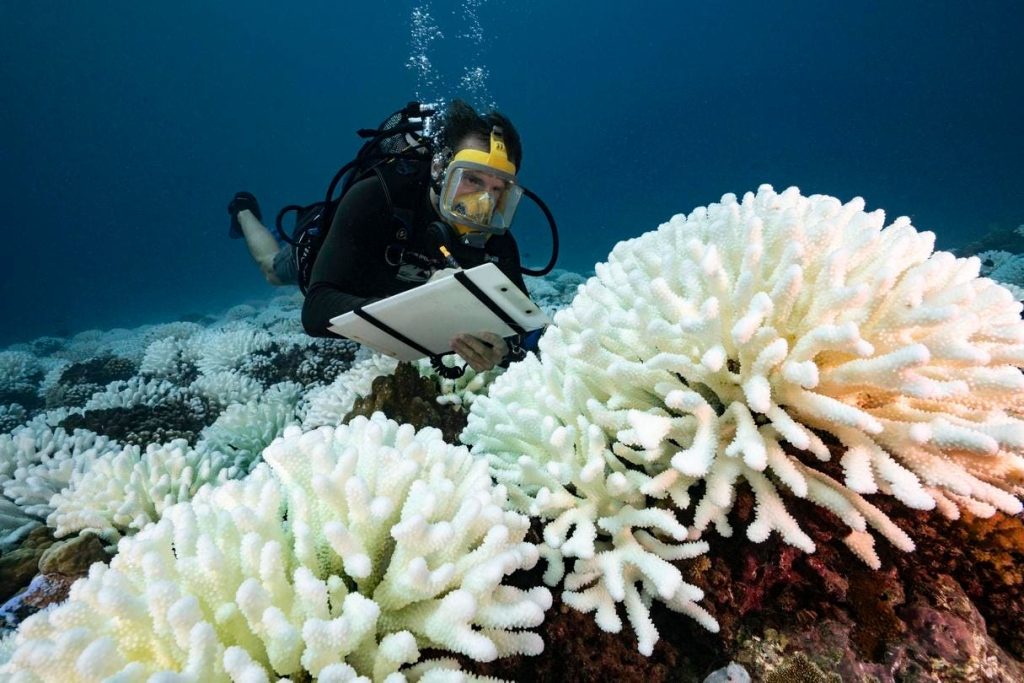In recent years, there has been growing concern about the impact of climate change on the world’s oceans. Dr. Kathryn Matthews, the chief scientist at the non-profit Oceana, explained how the oceans have absorbed 90% of the extra heat generated by the burning of fossil fuels. The rise in overall sea temperatures has affected marine life and disrupted delicate underwater ecosystems. Coral reefs, for example, expel their algae in a process known as coral bleaching when the water gets too hot, leading to their eventual death. Dr. Matthews also highlighted the issue of ocean acidification, which is making it harder for sea creatures with calcium carbonate shells to survive. However, she remains hopeful that science-based interventions and the recovery of fishing stocks in certain areas could help underwater ecosystems to recover.
Dr. Daniel Pauly, a leading fisheries scientist and Oceana board member, emphasized the consequences of greenhouse gas emissions and climate change on underwater heatwaves. The temperature rise in certain parts of the ocean leads to decreased oxygen levels, affecting the ability of fish to breathe through their gills. Dr. Pauly explained that gradual increases in temperature allow fish to adapt to warmer waters, but sudden heatwaves can be lethal to marine life. He also highlighted the creation of dead zones, like the one near the Mississippi River in the Gulf of Mexico, due to the death of algae and plankton essential for marine survival. Moreover, the lack of oxygen at deep levels in the sea forces many fish species to swim closer to the surface, making them more vulnerable to capture by purse-seine nets.
Dr. George Leonard, the chief scientist at Ocean Conservancy, discussed the intensification of marine heatwaves as a result of climate change. These heatwaves can have lethal effects on species that cannot move, such as warm water corals, and cause mobile species to migrate towards the poles. Climate impacts are also pushing ocean systems towards tipping points, where rapid changes fundamentally alter the system, making it challenging to return to its previous stable state. Another significant issue affecting the oceans is plastic pollution. A study by researchers at Imperial College London and GNS Science suggested that reducing plastic pollution by 5% per year could stabilize the level of microplastics in the surface oceans. The co-founder of the 5 Gyres Institute, Anna Cummins, highlighted the urgent need to address plastic pollution, as it is closely linked to the climate crisis.
Cummins emphasized the importance of innovation, alternative materials, and companies working towards regenerative production and packaging to combat plastic pollution. She called for holding industries accountable for polluting the oceans and climate. Additionally, efforts to reduce plastic pollution could contribute to stabilizing the level of microplastics in the oceans. In conclusion, it is clear that the impact of climate change on the world’s oceans is profound and urgent action is required to mitigate these effects. Scientists and environmental organizations are working towards finding solutions to safeguard the health and sustainability of our oceans for future generations.













